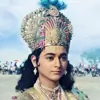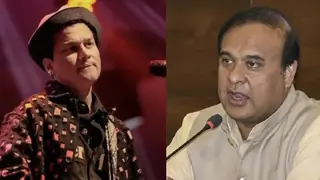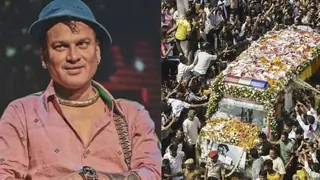Originally posted by: Ashwini_D
These are my musings on Krishna's counsel to Draupadi in the episode following the Vastraharan:
1) I agreed with Krishna asking Draupadi to give up her fury to have some peace of mind and not be angry over spilt milk. Only with a calm mind can one one have clarity in his/her thoughts and plan one's next move.
2) But I have my own doubts with Krishna asking Draupadi to convert her personal miseries into a struggle for the greater good of all-the fight against adharma. Here Krishna has already taken the stance that a war is necessary to wipe out all the adharmic kings from the face of the earth and revealed that to be his mission. So war, as soon as it gets divine sanction, becomes necessary for the emancipation of mankind.
3) While all of this makes for a good religious doctrine with the almighty aiding the 'good' with their fight against 'evil', I would like to ask a question here: In reality are the 'good' and 'evil' sides so easily distinguishable? Isn't the Mahabharata all about grey characters? Is war, which all agree should be the last resort, really the solution to all that is plaguing humanity? Doesn't the epic itself haunt us with these very questions?
4) If I am not wrong, even the epic has some evidence stating that the war did more harm than good. If I look at the epic, leaving aside all religious and divine elements, Krishna becomes just another character like the others. As soon as we bring down Krishna from this divine pedestal, the entire perspective of looking at the epic and the war changes. The war becomes a personal strife between two set of cousins, one fighting for their rights to the throne, which were unfairly taken away from them by the other side. So isn't the war what it is: a personal war? And not a war for the greater good? It is only Krishna's Godhood, which is a matter of faith, that lends credibility to the latter, which in my opinion is no credibility at all. We should not accept things, just because they have been sanctioned by religion.
Disclaimer: Please note that I am not sympathising with Duryodhan neither am I implying that he was on the 'good' side. I am doubting the very fact of who decides which is the 'good' side and which is the 'evil' side in the greater scheme of things. I wholeheartedly sympathise with the cause of the Pandavas, and feel that they are totally justified in avenging the wrongs done to them and demanding their rights. What I am ultimately questioning is people's belief that the Kurukshetra war was, merely because of divine sanction, an altruistic attempt from the good side and a victory for mankind. (which in my opinion is not entirely true).
Not trying to offend anybody's religious sentiments. I'm a theist myself.
when Krishan asked Draupadi to forgive Duryodhan, he was not asking her not to seek justice, but advising her not to burn in vengeance. one has to struggle and fight for justice, an individual seeking only revenge never gain the satisfaction once vengeance is achieved. but burns up in revenge. Krishan was concerned for Draupadi soul, he wanted her to not forcus on only her own plight, but to consider the other women who undergo the same horrors, but are unable to do anything about it. but she Darupadi as a goddess among women, the empress has the capability to stand up for them, and sooth their pain with her compassion and empathy.
Krishan spoke very simply, that if Duryodhan and his kin, could so daringly, insult and disgrace an empress without even the slightest regret or fear of the consequences. how much more badly would he treat the common women of the kingdom
the Kurukshetra war no matter what was bound to happen, but only due to Duryodhan's pride. he has no intention of giving back Indraprasta to the pandavs, he refuses to accept that what he did and make do was wrong, in his mind putting all the blame on the elders like Bheeshma, Dhrona, and vidhur. Repeating oven and over that he has no fear of the curse bestowed on him, by Draupadi and the pandavs. but he taunted Bheeshma and dhrona that they will suffer the curse for their dhram.
Duryodhan never once regret his horrendous deeds, never once did he ever question if what he did was wrong or right. the Pandavs were his brothers, but never once did he ever consider them as brothers. he only hated and envied them.
the pandavs gave duryodhan every opportunity to be content with all he had, they took a barren wasteland, and built a kingdom there, but duryodhan envy wanted that too. they kuru princes were the epitome of evil, pride, greed, envy, stubbornness, bullheadedness, sloth, lust. there was not an ounce of compassion and empathy or respect for others in them. Their deeds, so blasphemous that both man and god saw it as evil.
and i dont think Krishna on his divine Pedestal needed to state who was right and who was wrong.
the Kuravas deeds and the pandvas deeds, put the ones who were right very clear. the pandavs never took anything that belonged to the kauravas, yudistra even gave up the thrown of hastinapur so the both sides could live in peace. but here too they were duped, they had suffered every injustice quietly. not even demanding an explanation or making an accusation.
once again the take the road to suffering, only making a promise to get back what was theirs when they returned., even if they have to go for war.
silently suffering injustice and tyranny is a greater sin then going to war against that injustice and tyranny.
Whenever a rule or a king becomes destructive to the naturals law, which make all man equal and have the right to life, freedom and happiness. Then it is the right and duty of those who have the capability to alter, abolish and throw off such kingdoms and kings, such rules and institutes. And lay the foundations of principles that will reestablish the fundamental law of nature and society (dharm staphna) so that society can progress and strive without fear of tyranny and injustice.
Edited by merrydock - 11 years ago




































